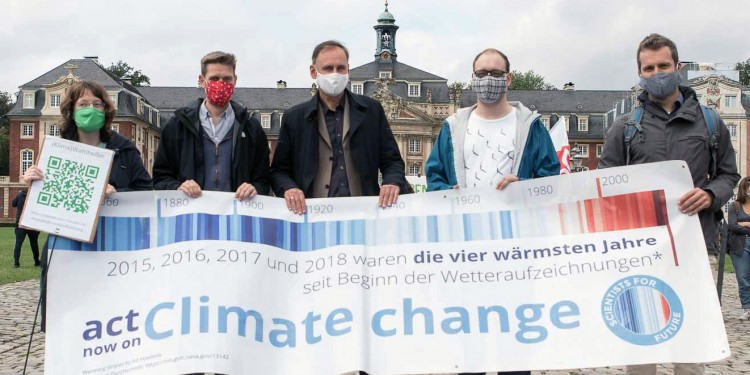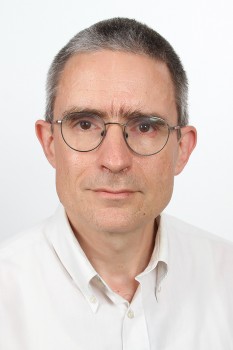
Using knowledge transfer to publicize climate change
If we look at the rate of global warming over the past 150 years, it is clear that we need to act fast and resolutely – not only in order to curb it, but also to stop the widespread extinction of fauna and flora, preserve natural resources and create a worthwhile future for present generations and those to come. As a result, the “Scientists for Future” (s4f) initiative and its Münster branch have a lot to do. Scientists at the University of Münster provide support for the voluntary work being undertaken.
S4f has two aims: firstly, to use its own scientific and/or political involvement in order to make proposals for ways and means of helping to curb the harmful consequences of the global, European, German and Münster ways of living, producing and consuming. And secondly: to make this activity an example of scientific transfer. As such, it strives for recognition not only within the scientific community. I also hope that it succeeds in recommending the results of scientific work to the whole of society as something both credible and dependable.

Other activities currently being pursued include talks with the political parties on the city council, as well as with other political decision-makers in Münster, on the implementation of climate-relevant goals in their election programmes; adapting democratic instruments to increase the involvement of members of the public in decisions relating to climate-relevant political measures; and dialogue with Facilities Management at the University of Münster to improve the carbon footprint for the University’s green spaces.
S4f is a group which has always been – and will continue to be – open to anyone interested in our activities. Global climate change naturally presents challenges to varying degrees for individual academic fields – ranging from Physics and Law to Landscape Ecology and Politics. However, for sf4 it is very clear that climate policy has long since become a subject which encompasses all of society and all university disciplines.
In 2019 I came into closer contact with the work being done at a national level by s4f Deutschland after they launched an appeal for support and I decided to devote a lecture to the topic here at Münster University. Although it first seemed that the traditional subjects covered by my discipline, Catholic Theology, did not lend themselves directly to the problem of climate change, it soon became clear to me that my academic approach and my core subjects were being “questioned”, in a positive sense, as a result of current developments. So members of, and graduates in, all university subjects and disciplines are very welcome in our local group. And besides, interdisciplinary exchanges are always fascinating.
The Münster branch group met for the first time in May 2019. As scientists – taking part in what are currently online meetings – we support s4f Deutschland’s Charta. The group includes past and present members of Münster University or other universities in Münster who see the local centre of their scientific and/or political activity and concerns in the Münster area. All the members decide for themselves whether they wish to work closely with the group, or more at a distance, and this in turn determines the frequency with which they take part in meetings and the extent of their involvement in the group. The aim of the meetings is to enable exchanges on the scientific and political activities of individual members and working groups, as well as to facilitate the planning and coordination of joint activities.
Author Prof. Clemens Leonhard is Head of the Department of Liturgical Studies at the Faculty of Catholic Theology.
